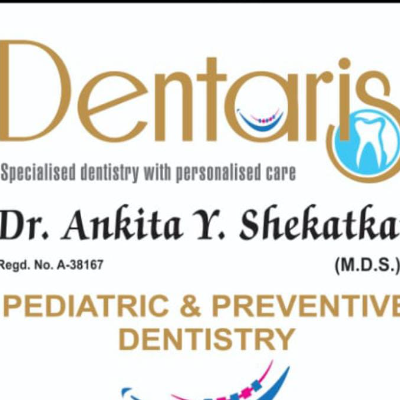+918048036116

This is your website preview.
Currently it only shows your basic business info. Start adding relevant business details such as description, images and products or services to gain your customers attention by using Boost 360 android app / iOS App / web portal.
Description
Dentures are removable dental appliances that replace missing teeth and surrounding tissues. They are a common solution for people who have lost some or all of their natural teeth due to decay, injury, or other health conditions. Dentures help restore the functionality of teeth and improve the appearance of the smile. *Types of Dentures:* 1. *Complete (Full) Dentures:* - *Function:* Replace all the teeth in either the upper or lower jaw (or both). - *Structure:* Consist of a gum-colored acrylic base that fits over the gums, with a full set of prosthetic teeth attached. - *Placement:* Upper dentures cover the roof of the mouth, while lower dentures are shaped like a horseshoe to accommodate the tongue. - *Retention:* Held in place by the suction between the denture and the gums, sometimes with the help of denture adhesives. 2. *Partial Dentures:* - *Function:* Replace one or more missing teeth while preserving the remaining natural teeth. - *Structure:* Usually consist of a metal or acrylic framework that attaches to the remaining natural teeth with clasps or precision attachments, with the prosthetic teeth attached to the framework. - *Placement:* Fits around the remaining natural teeth, filling in the gaps where teeth are missing. - *Retention:* Partials are held in place by the natural teeth and sometimes by a small clip or clasp. 3. *Immediate Dentures:* - *Function:* Provide a temporary set of teeth immediately after teeth extraction. - *Structure:* Similar to complete or partial dentures but made in advance to be placed right after tooth removal. - *Placement:* Placed on the same day the teeth are extracted, allowing the patient to avoid being without teeth during the healing period. - *Adjustment:* As the gums heal and shrink, immediate dentures usually require adjustment or relining for a proper fit. 4. *Overdentures:* - *Function:* Fit over a small number of remaining natural teeth or dental implants for added stability. - *Structure:* A removable denture that snaps onto the remaining natural teeth or implants that act as anchors. - *Placement:* Positioned over the natural tooth roots or dental implants, providing improved stability and retention compared to regular dentures. ### *Advantages of Dentures:* - *Restored Functionality:* Dentures restore the ability to chew and speak, which can be impaired by missing teeth. - *Improved Appearance:* They provide a natural-looking smile and help fill out the appearance of the face, preventing the sunken look that can occur with missing teeth. - *Support for Facial Muscles:* Dentures help support facial muscles, which can sag without the support of natural teeth. - *Customizable:* Dentures are custom-made to fit the patient’s mouth, ensuring a comfortable and natural fit. ### *Disadvantages of Dentures:* - *Adjustment Period:* Wearing dentures can take some time to get used to, and some initial discomfort or difficulty in speaking and eating is common. - *Stability Issues:* Full dentures, especially lower ones, can sometimes slip or move out of place, particularly without adhesives. - *Maintenance:* Dentures require regular cleaning and care to prevent gum infections, mouth sores, and bad breath. - *Bone Loss:* Over time, the jawbone under the dentures can shrink, affecting the fit of the dentures and necessitating relining or replacement. ### *Maintenance and Care:* - *Daily Cleaning:* Dentures should be removed and cleaned daily with a denture cleaner or mild soap and a soft-bristled brush to remove food particles and plaque. - *Soaking:* Dentures should be soaked in water or a denture-cleaning solution overnight to keep them moist and maintain their shape. - *Oral Hygiene:* Even with dentures, maintaining oral hygiene is crucial. The gums, tongue, and any remaining natural teeth should be cleaned regularly. - *Regular Dental Check-ups:* Regular visits to the dentist are important to ensure the dentures fit properly and to check for any oral health issues. ### *Getting Used to Dentures:* - *Speech and Eating:* It may take some time to adapt to speaking and eating with dentures. Starting with soft foods and practicing speaking can help. - *Sore Spots:* It’s common to develop sore spots as you get used to dentures. These should be addressed by the dentist, who can adjust the fit as needed. Dentures are a practical and effective solution for people who have lost multiple teeth, providing significant improvements in function and appearance. With proper care, they can last many years and greatly enhance the quality of life for individuals with missing teeth.

